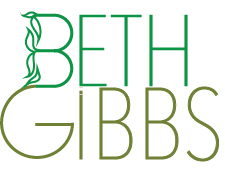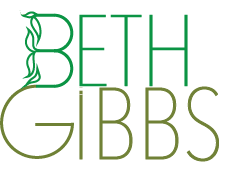ENLIGHTEN UP! a blogSelf-awareness stories: lighting our way to clarity, contentment and resilience in a complicated world.
|
 Menopause, the ‘M’ word has emerged from the shadows and is now part of our cultural consciousness. The Pause, as it is sometimes called, is seen by the medical profession, Big Pharma and many women as the end of fertility, the beginning of aging and a condition to be medicated. Given our modern health care and longer life spans, women in America can anticipate spending close to one-third of their lives in a post-reproductive state. That’s a long time to see life through a glass darkly! Let’s Enlighten Up! and see menopause as a transformative experience, a Pause that refreshes. Looking at menopause in a positive light for American women takes a bit of doing. In 2015, Dr. Mary Jane Minkin, a professor in obstetrics, gynecology and reproductive health at Yale Medical School was quoted in a Reuter’s Health article discussing cultural differences in women’s experience of menopause: “In societies where age is more revered and the older woman is the wiser and better woman, menopausal symptoms are significantly less bothersome. Where older is not better, many women equate menopause with old age, and symptoms can be much more devastating.” In America, older is not considered better if you are a woman, at least not yet. Need an example? Look at some language used to describe menopause. Google: synonyms for menopause at https://www.powerthesaurus.org/menopausal/synonyms. You will find a long list filled with unflattering and unhelpful words:
UGH! GIVE ME A BREAK! And don’t get me started on how menopause is depicted in ads and pictures — so many images of sad looking women with their hands clutching their heads. It is time for a positive change in how we view and manage this transition. Movies, television and books are beginning to present positive images of older women but right now that beginning adds only one drop of truth to an ocean of ignorance. What can you do about it? You can change your perspective so start with yourself, right now, this minute. It doesn’t matter if your menopause transition is past, present or years in the future. Your menopause is like your fingerprint — unique and personal. The way you perceive and move through this transition can transform your inner and outer experience. One way to change your view of menopause is to see how it fits into your life span. There are many ways to divide a life span. Online they range from four to 12. I like to keep things simple so let’s go for four:
In general, midlife seems perfectly timed to align with menopause. It can be seen as moving away from a more active time of life toward a more contemplative one. Many western writers and thinkers, such as Marian VanEyke McCain, Christiane Northrup, and Clarissa Pinkola Estes, support this view. They point to the drive that moves women to begin an inner journey, address unfinished business, and claim the wisdom and power inherent at this time of life. Seen from this perspective, menopause is a natural transition that can enrich the journey from midlife to the senior years. However, as lovely and transformative as that sounds, there are stressful challenges women may face. While doing research for my master’s thesis on menopause, I discovered a long list of possible symptoms including the most common:
And two surprising uncommon ones:
How can you deal with menopausal stress? Start with the first layer of self-awareness, your physical body. My menopause date is many years in the past but trust me, stress still visits. I walk. I do yoga and I dance like no one is watching. I’ve noticed that if I skip more than a few days without exercise, I become passive, petulant and pissy – not a pretty sight. Your exercise choices will be like your menopause experience — unique and personal. The Mayo Clinic says: “Exercise in almost any form can act as a stress reliever. Being active can boost your feel-good endorphins and distract you from daily worries.” One way to keep your menopause stress from going meno-Postal is to take a meno-Pause and find a way to exercise. With firm intention, a little research and a healthy dose of discipline, you will find a way to incorporate some form of exercise into your life. Adapting exercise for menopause will depend on your specific needs. For example, moving slowly, taking time to sense and feel your body move through space tends to cool and calm. Moving faster with more intensity tends to warm and energize. What you do and how you do it will depend on what you need in the moment. It’s a good time to tune into your Witness, the fourth layer of self-awareness and recognize how stress and menopause may be impacting you. Here’s one woman’s story: P., is a yoga teacher and my friend. When we were sharing menopause stories, she told me she had a lot going on in her life in addition to menopause; a new husband, a twelve year old daughter from a former marriage, a late life two and a half year old baby girl from the new marriage, a stressful job as a researcher for a domestic violence project, a new yoga business and a pending appearance as a witness in a sexual harassment suit. Usually efficient and punctual, she was experiencing growing periods of mental fuzziness. In addition, she had been losing track of time, not showing up for some appointments and being late for others. She was experiencing what for her was an uncomfortable level of inner turmoil. About this state of affairs she said, “I don’t really think I have more stress than usual. It’s just that I feel it more now.” Managing individual symptoms is another matter. Hot flashes are one of the most common. In her book, The Wisdom of Menopause, Christiane Northrup, M.D., defines a hot flash this way: “Also known as vasomotor flushing, the hot flash occurs when the blood vessels in the skin of the head and neck open more widely than usual, allowing more blood to shift into the area, creating heat and redness.” Typically triggered by falling estrogen levels, hot flashes usually stop a year or two after the actual menopause date. However, in some cases women may experience hot flashes for years. M., another friend of mine was surprised and appalled to be experiencing hot flashes a decade after her last period. When I told her it was normal, although understandably uncomfortable, she said, “Why didn’t my doctor ever tell me that!” I’m guessing that her doctor didn’t know and never read Northrup’s book! In general, if a woman has an adverse response to stressful events, the more hot flashes she may have or the more intensely she may experience them. Conversely, the more effectively a woman handles stress, the more likely she is to experience milder hot flashes or have less intense reactions to them. If you have hot flashes, try techniques that cool and calm. Here is a breath practice that can be done anytime, anywhere. No mat, chair or yoga pants needed! It is one of my favorites. Cooling Breath for Hot Flashes This breath practice often stops a hot flash if caught as the flash begins. Practice the Cooling Breath consistently so it will be readily available when you feel a flash or a flush coming on. This technique has helped several of my yoga students and a few others, including my flashing friend, M., who does not have a yoga practice and is not interested in starting one. Instructions:
How it works: the inhalation brings cool air into the body. The exhalation releases warm air out. As you think about your menopause experience, past, present or future, here is something to keep in mind: “There is no more creative force in the world than the menopausal woman with zest.” ― Margaret Mead, cultural anthropologist
0 Comments
Your comment will be posted after it is approved.
Leave a Reply. |
Archives
July 2024
AuthorBETH GIBBS started her yoga practice in 1968, four months after her son was born and she’s been practicing ever since. She currently teaches all levels therapeutic yoga classes for adults, and specialty classes for seniors in the Hartford, Connecticut area. Beth is a certified yoga therapist through the International Association of Yoga Therapists and is guest faculty at the Kripalu School of Integrative Yoga Therapy. She writes for the blogs, Yoga for Healthy Aging, and Accessible Yoga. Her master’s degree from Lesley University in Cambridge, MA is in Yoga Therapy and Mind/Body Health. Categories |
|
|
Enlighten Up! a Blog
|
Copyright © 2023 Beth Gibbs

 RSS Feed
RSS Feed
